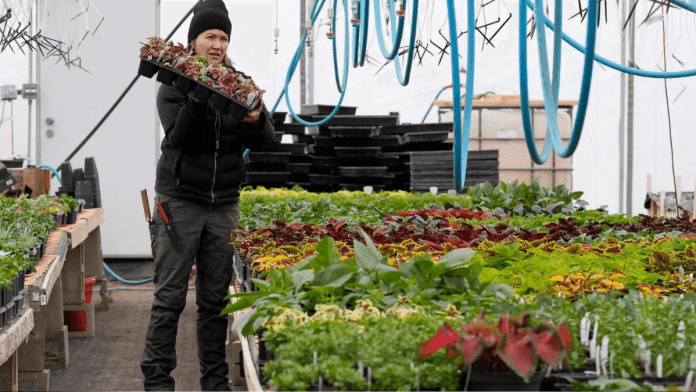News in Brief:
– A study in California finds that as organic farming acreage grows, nearby conventional farms increase pesticide use to combat heightened insect threats.
– Organic farms benefit from proximity to other organic fields, leading to a decrease in pesticide usage, sparking debates on agricultural practices and policy recommendations.
Champions of organic farming often tout its benefits for both humans and the environment. However, a recent study conducted in a California county has shed new light on an unexpected consequence of the expansion of organic acreage: an increase in pesticide use by nearby conventional farms.
Led by Ashley Larsen, an associate professor at the University of California, Santa Barbara, the study published in Science journal suggests that the growth of organic farms prompts nearby conventional farms to apply more pesticides. This uptick in pesticide use is likely driven by the need to combat heightened insect threats to conventional crops.
Implications for agricultural practices
Interestingly, the researchers found that organic farms surrounded by other organic fields experienced a decrease in pesticide usage. This phenomenon is attributed to the shared reliance on natural predators of agricultural pests among organic farming practices.
The study analysed 14,000 fields in California’s Kern County over a seven-year period, revealing significant insights into the dynamics between organic and conventional farming. As organic farm acreage continues to rise, maintaining sufficient separation between organic and conventional farms could prove beneficial for both.

Conventional farmers react to organic operations as pest ‘hot spots’
While some advocate for policies to segregate organic and conventional farms, many farmers, regardless of their preferred farming methods, resist such measures. Critics argue that more research is necessary before implementing restrictive policies, as the study did not measure the actual insect populations on the farms.
The study highlights how conventional farmers perceive nearby organic farms as potential sources of pest outbreaks. This perception often leads to increased pesticide application, despite potential environmental consequences.
Experts emphasise the need for a comprehensive evaluation of agricultural practices beyond pesticide use alone. Factors such as human health, air and water quality, and ecosystem diversity should be considered to understand the full impact of different farming methods.
Organic farmers express concern about the study’s focus solely on the effects of organic farms on conventional operations, without considering the reverse impact. Some suggest that clustering organic farms together could foster a sense of community and shared practices.
In conclusion, while organic farming offers numerous benefits, its expansion presents challenges for neighboring conventional farms. As discussions continue on how to navigate these complexities, a holistic approach to assessing agricultural practices is essential for sustainable farming in the future.



